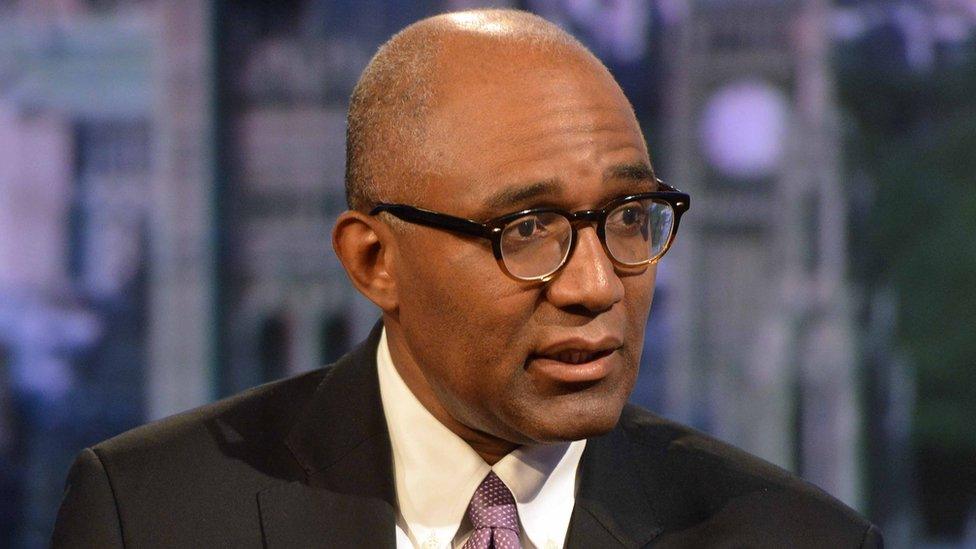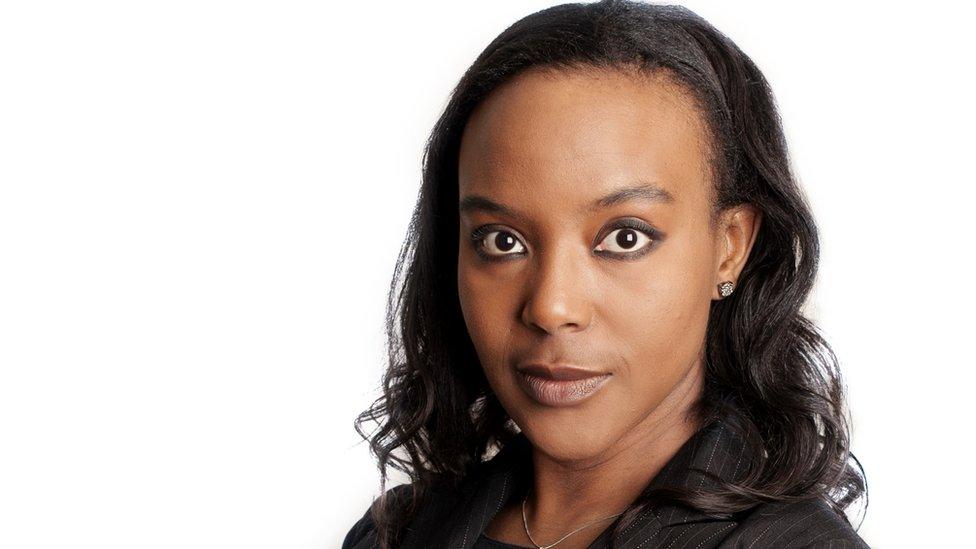Black bosses 'shut out' by 'vanilla boys' club'
- Published

Trevor Phillips used to chair the UK's racial equality watchdog
There are fewer black people at the top of FTSE 100 firms despite long-standing diversity targets, research has found.
For the first time in six years, there are no black chairs, chief executives or finance chiefs, the Green Park consultancy found.
Green Park chair Trevor Phillips said talented black people did not stay at big firms because they felt they would be used as "window dressing".
A "vanilla boys' club" of senior executives was to blame, he said.
According to Green Park's research, just 10 out of 297 FTSE 100 chairmen and women, chief executives and finance chiefs are from an ethnic minority background.
That makes 3.4%, the same proportion as when the consultancy started collecting its data six years ago.
'Snowy peaks'
Recent changes in the FTSE 100 have removed what black representation there was at the most senior level.
Cruise operator Carnival, led by African-American chief executive Arnold Donald, fell out of the index last year.
Meanwhile, Fred Phaswana, a South African, retired as chairman of packaging and paper firm Mondi in 2019.
"I have to say that our team was astonished to see this," Mr Phillips, the former head of the Commission for Racial Equality, told the BBC's Today programme.
He said that many talented black people were joining big firms, but not staying the course, because they felt they had little chance of reaching the top.
Daunted by the "snowy peaks" of UK business, they either moved to smaller companies or sought better prospects in the US, he added.
"They think that they're not going to get anywhere or that they're just window dressing," he said.
'Lukewarm acceptance'
The prospects for future increases in black participation "look slim", Green Park said, "with numbers in the leadership pipeline decreasing over the past year from 1.4% to 0.9%."
Mr Phillips said companies had gone for token anti-racism in the wake of last year's Black Lives Matter protests, but they needed to change their culture and become more diverse.
"Chairs of boards and chairs of nomination committees need to look at what they've got, which is essentially a vanilla boys' club, and reach out further than they are doing," he added.
"They need to take responsibility."
Frank Douglas, a black former HR director at a FTSE 100 firm and now in charge of recruitment advisory company Caerus Executive, told the BBC that big firms lacked the "personal and emotional commitment" to having black executives.
"What we are witnessing right now in UK PLC is lukewarm acceptance [of the idea]," he said.
Business group the CBI called for firms to make themselves publicly accountable for increasing diversity.
CBI president Lord Bilimoria said: "It's staggering that we continue to see so little black, Asian and ethnic minority participation in our boardrooms."
- Published5 February 2020

- Published22 June 2020
